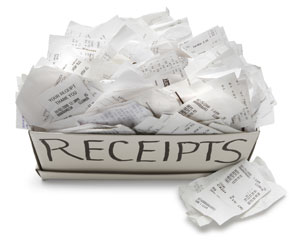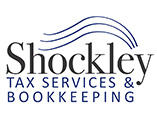[vc_row][vc_column][vc_column_text]
Develop a System
Many companies today are still using file boxes with manila envelopes or another similar type of paper system to organize and file away their business’ receipts and financial records. These are the documents that you may hand over to your bookkeeper in Broken Arrow when tax season rolls around. While this is one way to do it, this method inevitably creates a massive paper nightmare for you. Even a small business can easily accumulate one or several full file boxes of financial records per year. Seven years’ worth of financial records can take up an entire storage closet or even a small room in your office. Of course, if anything happens to your office, such as theft, fire or flood, these documents are gone. A better idea is to scan in the receipts and save them in digital format. Then, back those receipts up with a cloud-based storage solution. You can put that storage closet to better use and can find the documents you need with greater ease.[/vc_column_text][/vc_column][/vc_row][vc_row color=”” message_box_style=”standard” style=”rounded” message_box_color=”grey” icon_type=”fontawesome” icon_fontawesome=”fa fa-info-circle” icon_monosocial=”vc-mono vc-mono-fivehundredpx” icon_openiconic=”” icon_typicons=”” icon_entypo=”” icon_linecons=”” icon_pixelicons=””][vc_column][vc_message message_box_color=”grey”]
Questions about using a bookkeeping service to help organize your financial records?
Find out how in Ultimate Guide for Small Business Bookkeeping[/vc_message][/vc_column][/vc_row][vc_row][vc_column][vc_column_text]
Keep Your File System Up-to-Date
Simply developing a great file system is not enough. You also need to keep your file system up-to-date. You may make business-related purchases on an almost-daily basis, and over the course of a week or a month, those receipts can really add up. Consider setting aside a portion of time every week to add these receipts to your accounting software and to scan them into a digital format for safe keeping. When you set time aside to do this every week, you will enjoy the ability to get rid of that stack of receipts that piles up on your desk and to safeguard your financial records.
Organizing financial records and receipts can be quite a challenge. Over the course of a year, a small business may accumulate hundreds or even thousands of receipts and other financial documents that must be kept, so finding a way to organizing these documents is critical. Your Broken Arrow bookkeeping professional, Shockley Bookkeeping, can help you to sort through the documents, but developing a great internal organizational process can be helpful for you as well. By following these steps, you can more easily stay on top of your financial records.[/vc_column_text][/vc_column][/vc_row]
